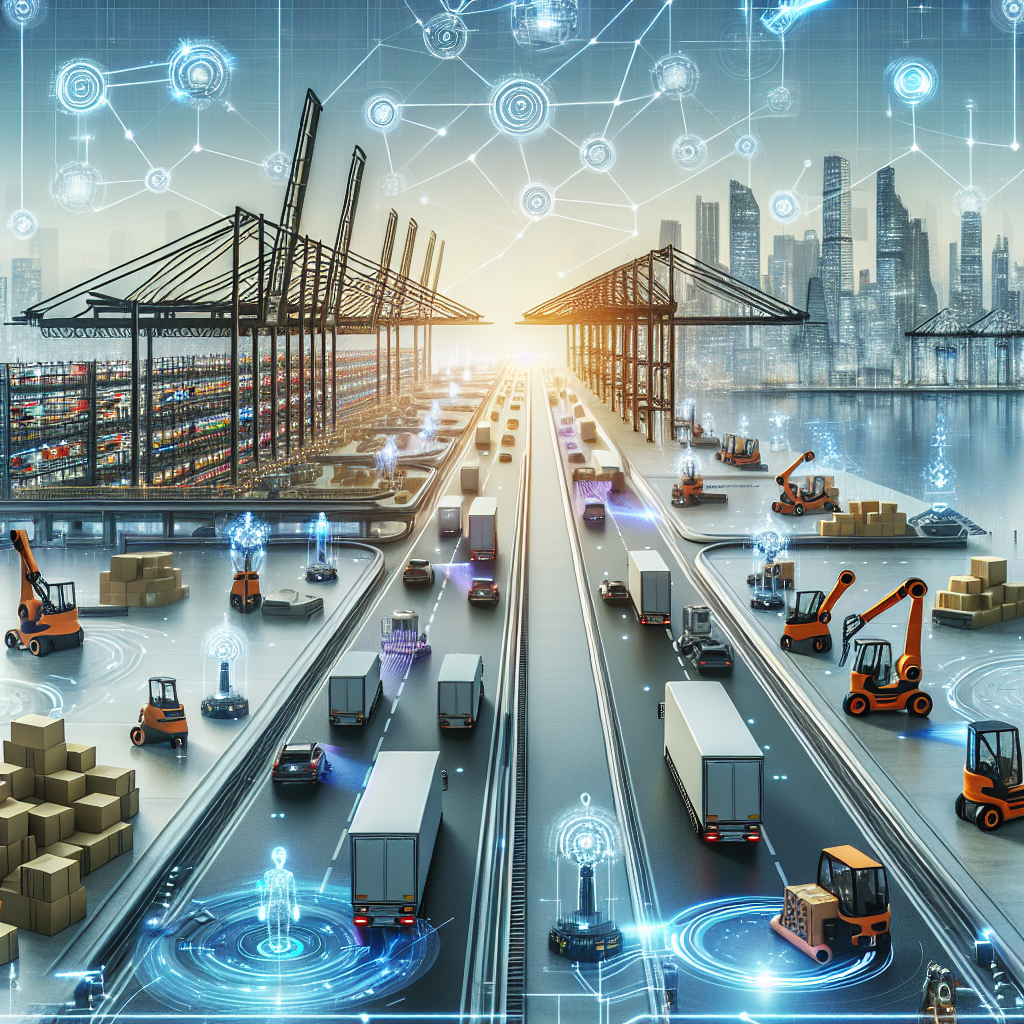The Future of AI in Transportation and Logistics
Artificial Intelligence (AI) has been making significant strides in various industries, and transportation and logistics are no exception. From autonomous vehicles to predictive maintenance and route optimization, AI is revolutionizing the way goods are transported and delivered around the world. In this article, we will explore the future of AI in transportation and logistics and how it is shaping the industry’s landscape.
1. Autonomous Vehicles
One of the most significant advancements in transportation is the development of autonomous vehicles. These self-driving cars, trucks, and drones are equipped with AI technology that allows them to navigate roads, avoid obstacles, and make decisions in real-time. Companies like Tesla, Waymo, and Uber are leading the way in developing autonomous vehicles that can revolutionize the way goods are transported.
Autonomous vehicles have the potential to make transportation safer, more efficient, and cost-effective. They can reduce accidents caused by human error, optimize routes to minimize fuel consumption, and increase the speed of deliveries. As AI technology continues to improve, we can expect to see more autonomous vehicles on the road in the coming years.
2. Predictive Maintenance
AI is also being used in transportation and logistics to predict when vehicles and equipment will require maintenance. By analyzing data from sensors and monitoring systems, AI algorithms can detect potential issues before they become major problems. This allows companies to schedule maintenance at the most convenient time, reducing downtime and increasing operational efficiency.
Predictive maintenance is especially important in the transportation industry, where delays can have a significant impact on delivery schedules and customer satisfaction. By using AI to anticipate maintenance needs, companies can ensure that their vehicles are always in top condition and ready to hit the road.
3. Route Optimization
Another area where AI is making a big impact in transportation and logistics is route optimization. By analyzing traffic patterns, weather conditions, and other factors, AI algorithms can determine the most efficient route for vehicles to take. This can help companies save time and money by reducing fuel consumption and minimizing delays.
Route optimization is particularly important for companies that operate large fleets of vehicles, such as trucking and delivery companies. By using AI to plan routes more effectively, these companies can improve their operational efficiency and provide better service to their customers.
4. Inventory Management
AI is also being used in logistics to optimize inventory management. By analyzing data on sales trends, customer demand, and supply chain logistics, AI algorithms can help companies determine the optimal level of inventory to keep on hand. This can reduce costs, minimize stockouts, and improve customer satisfaction.
AI can also help companies identify opportunities to streamline their supply chain and reduce waste. By analyzing data on transportation routes, warehouse operations, and distribution networks, AI algorithms can identify areas where companies can improve efficiency and reduce costs.
FAQs
Q: How will AI impact jobs in the transportation and logistics industry?
A: While AI has the potential to automate some tasks in the transportation and logistics industry, it is also creating new opportunities for workers. AI technology requires skilled professionals to develop and maintain the algorithms, as well as workers to operate and manage the systems. Companies will need to invest in training and upskilling their workforce to take advantage of these new opportunities.
Q: Will autonomous vehicles replace human drivers?
A: While autonomous vehicles have the potential to reduce the need for human drivers in some cases, they are unlikely to completely replace them. Human drivers will still be needed for tasks that require complex decision-making and interaction with customers. Autonomous vehicles are more likely to supplement human drivers, rather than replace them entirely.
Q: How can companies implement AI in transportation and logistics?
A: Companies can implement AI in transportation and logistics by investing in the right technology and talent. They can start by collecting and analyzing data on their operations to identify areas where AI can make the biggest impact. Companies can then work with AI developers and technology providers to implement the necessary systems and algorithms.
In conclusion, the future of AI in transportation and logistics is bright. From autonomous vehicles to predictive maintenance and route optimization, AI technology is transforming the industry and creating new opportunities for companies to improve efficiency and customer satisfaction. By embracing AI and investing in the right technology and talent, companies can stay ahead of the curve and drive innovation in transportation and logistics.

